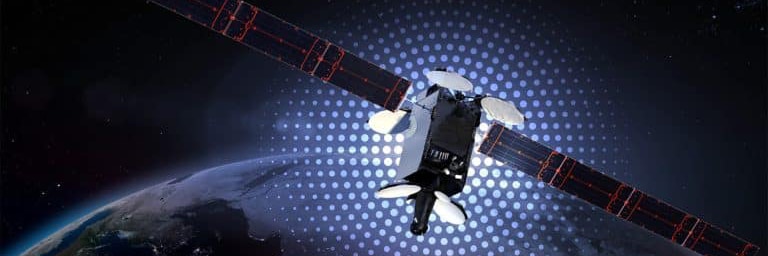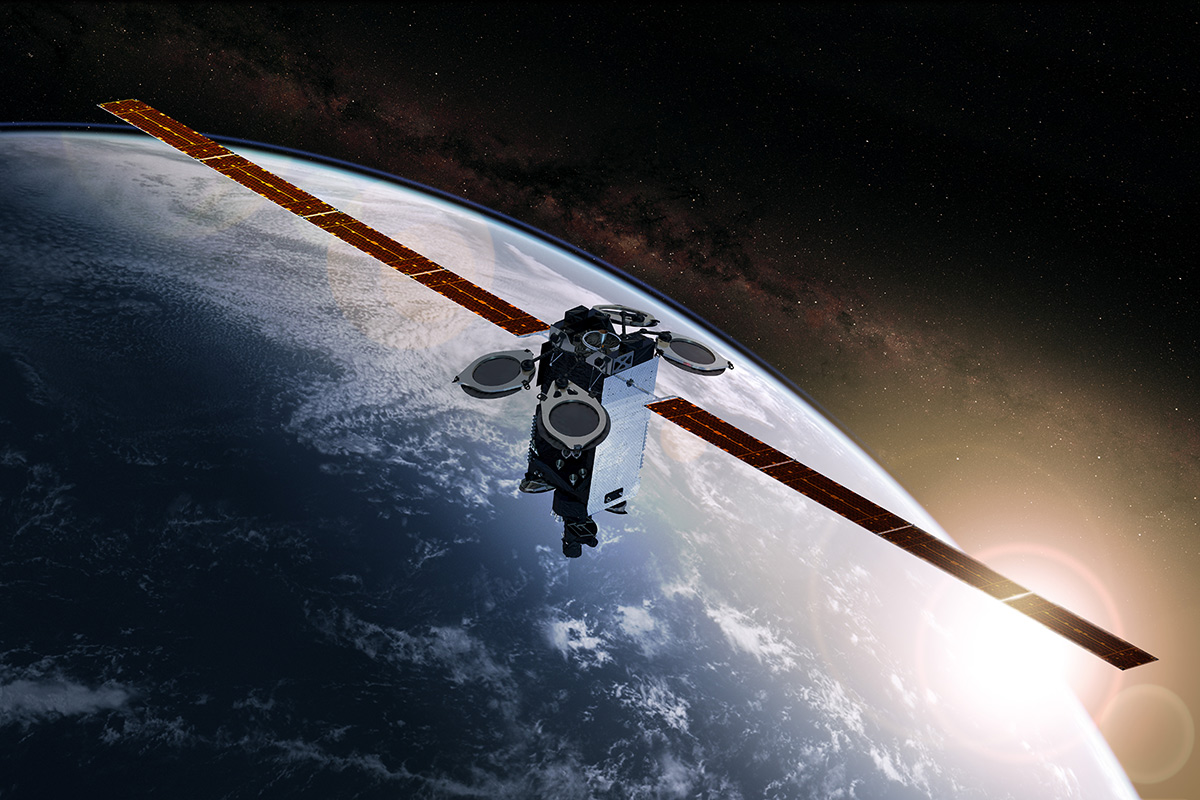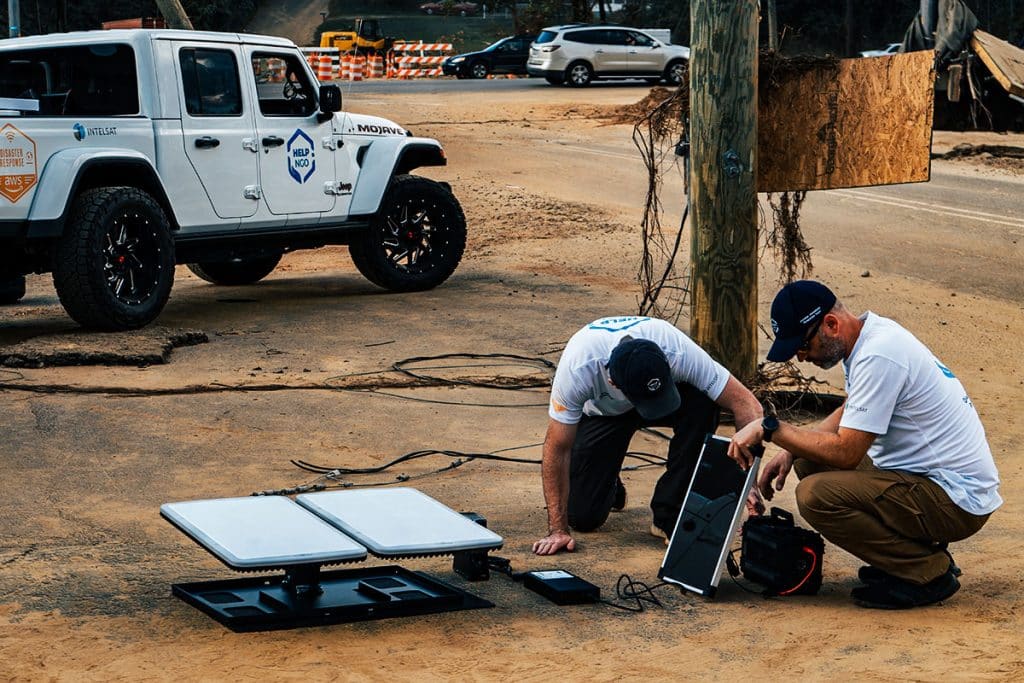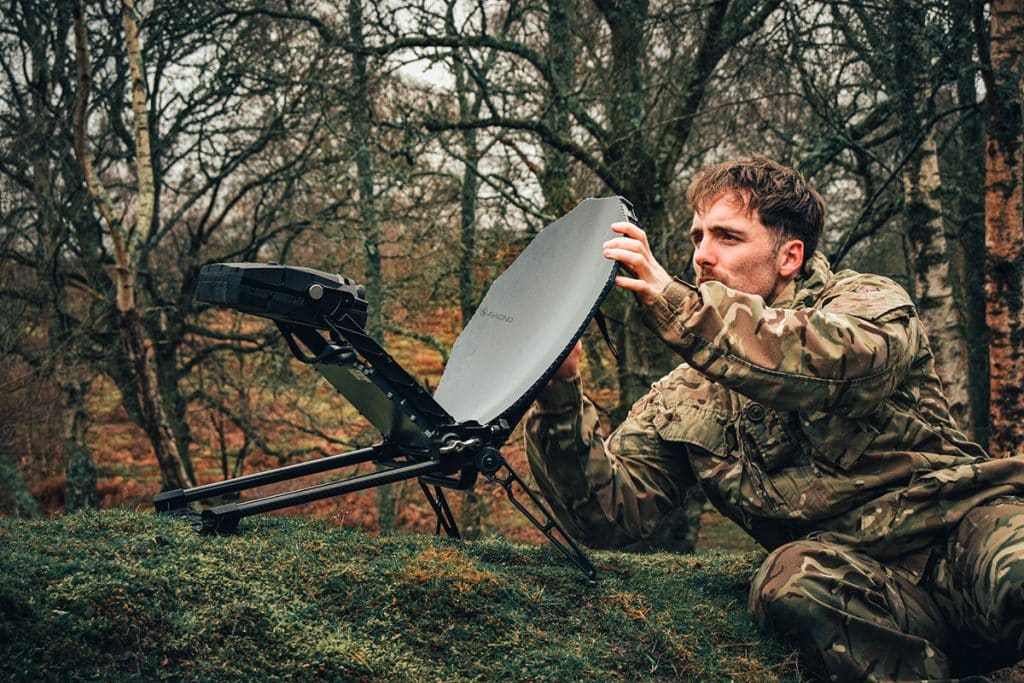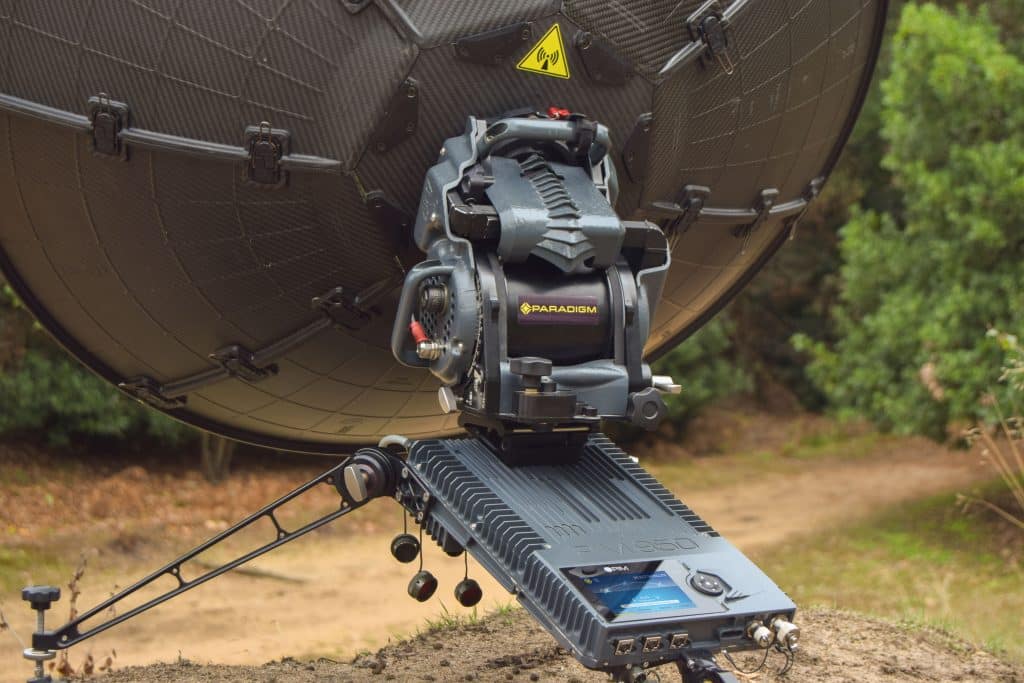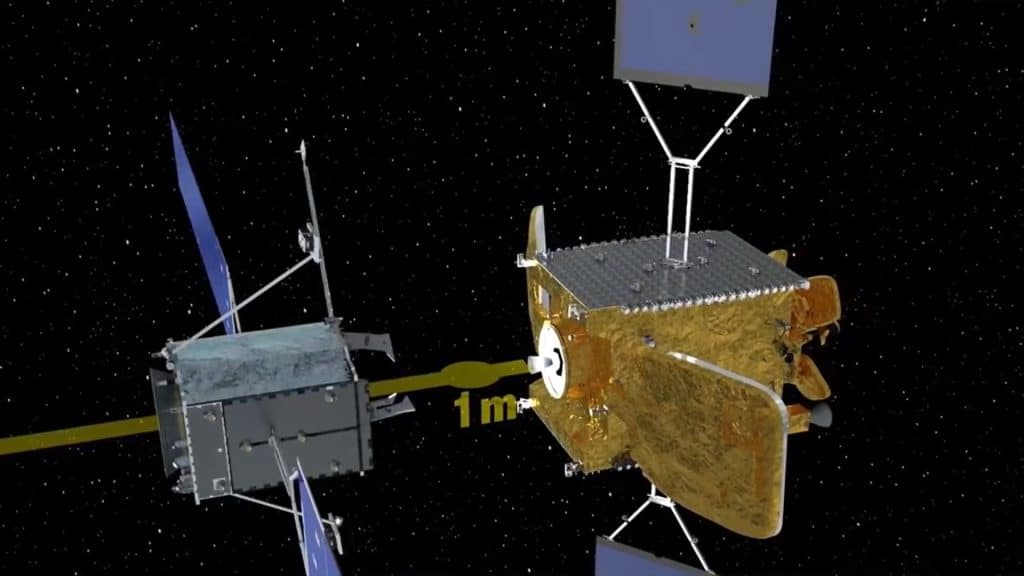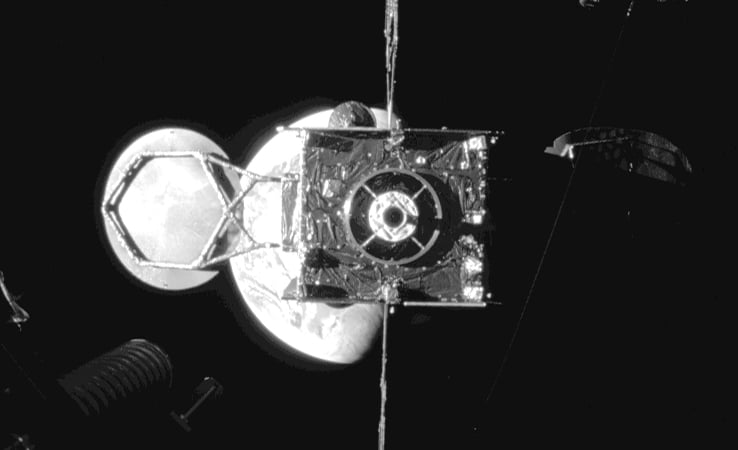NASA, FAA & Military Branches Hitch Rides to Space with Intelsat Hosted Payloads
Intelsat Corporate Communications
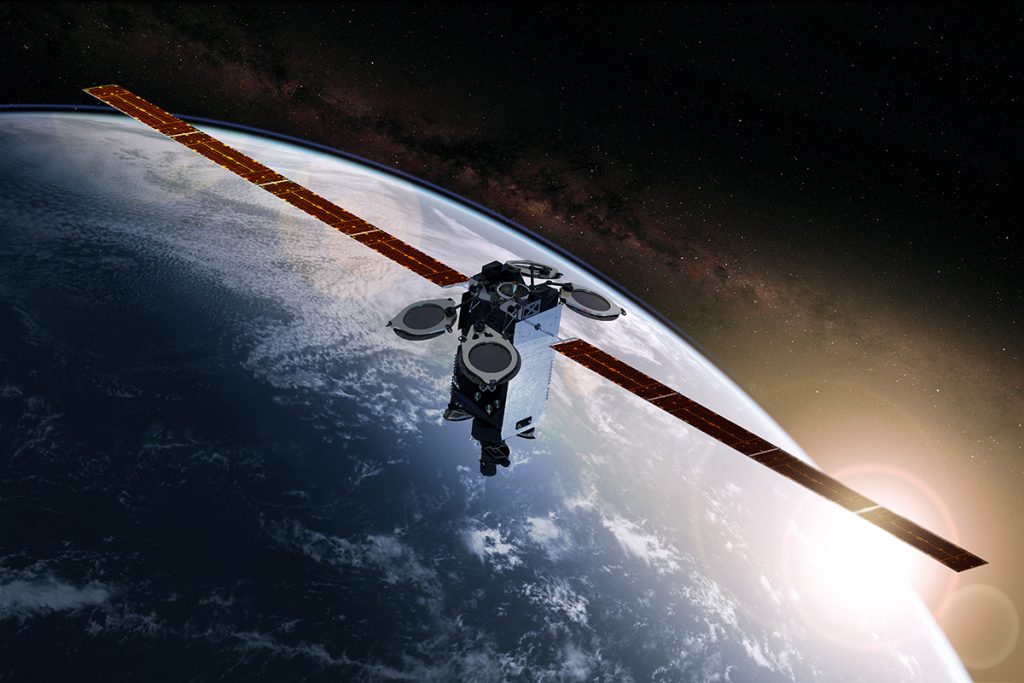
Spring can’t come soon enough for the teams at Intelsat and NASA. Come April 2023, Intelsat is set to host NASA’s TEMPO (Tropospheric Monitoring of Pollution) instrument onboard the Intelsat 40e satellite. TEMPO will be an Earth Venture Instrument mission and will help NASA improve air quality forecasting with exceptionally detailed measurements of atmospheric pollution over North America. While this launch initiates a new mission, hosted payloads are not new to NASA or organizations in the commercial space sector. Intelsat has supported government agencies globally – including the Australian Defence Force (ADF), the Federal Aviation Administration (FAA), and the United States’ Department of Defense (DoD) – by launching hosted payloads.
Hosted payloads allow government agencies and commercial organizations to buy space on Intelsat satellites to meet their own mission requirements. The hosted payload shares the power, commanding, telemetry, thermal control, and pointing provided by the host satellite. Intelsat also provides integrated ground infrastructure, launch service, and on-orbit operation solutions for hosted payloads. Thus, use of hosted payloads allows partner organizations to access space more efficiently and economically.
Typically, the GEO satellite design process begins 12 to 18 months before a hosted payload contract is signed. Once the contract is signed, it typically takes three to four years for Intelsat to build, integrate, and test the satellite before launching it. Hosted payloads should be delivered to Intelsat approximately a year before launch, to permit the satellite manufacturer to complete testing and final preparation. From conception to launch, this hosted payload timeline is significantly faster and more efficient than the average timeline for government agencies procuring their own, dedicated satellites.
As hosted payloads foster better industry collaboration and reduce the number of satellites in space, they also contribute to space sustainability. An increased use of space for military and commercial purposes has led to a slew of startups sending a large number of satellites into orbit. It’s estimated that by the first quarter of 2022 there were 5,500 satellites orbiting Earth. This surge in satellites has created concerns about satellite collisions, earth-bound debris, and a diminished view of space. With their commitment to protecting the environment and reducing their carbon footprint, Intelsat is helping to address these issues with hosted payloads.
As well as not contributing to congestion in Earth orbit, those who use hosted payloads benefit most from cost sharing. For example, the ADF estimates that its hosted payload aboard Intelsat 22 will save taxpayers over $150 million during its lifespan. Building and launching a satellite independently is a multi-million-dollar operation, but hosted payloads alleviate many of those costs. This makes getting a payload to space much more accessible for all concerned.
Beyond cost savings, hosted payloads also allow agencies to work with experts who have vast experience designing, integrating, and launching satellites. As the largest satellite capacity provider for the U.S. government, Intelsat has been a leader in the satellite Industry since its inception in 1964. Intelsat has a long history of success with most major satellite manufacturers and launch service providers, with emphasis on vendor visibility, schedule credibility, mission assurance, budget discipline, and technical performance. Intelsat provides an on-site team to monitor the progress of the design, construction, and integration of the satellite and hosted payload at the manufacturer’s facility. Intelsat has the capabilities and knowledge to assure mission success for agencies who may lack expertise in these areas.
Aside from NASA’s scientific instrument payloads, many diverse and mission critical operations have been supported through hosted payloads. Intelsat has been at the forefront of FAA’s WAAS (Wide Area Augmentation System) program, hosting two of its WAAS payloads on GEO satellites. One of the three WAAS payloads maintained by the FAA was replaced most recently in 2020 by a payload hosted on Intelsat’s Galaxy 30 satellite. From enroute navigation to airport arrivals/departures, these payloads are crucial to flight services throughout the U.S. National Airspace System. The number of commercial satellites launching across the U.S. made hosted payloads a more viable option for the FAA than building and launching its own satellites.
Like the FAA, the ADF needed a faster and more cost-effective method of launching a mission-critical communications payload. Hosted aboard the Intelsat 22 satellite, the UHF (Ultra-High Frequency) payload launched in 2012 in under three years following contract award. Intelsat’s ability to quickly get the satellite positioned in space enabled expeditious UHF communications for Australian, U.S., and other Allied military forces in the Middle East and Afghanistan. And as Australia shares use of UHF channels with the United States, troops of both countries have benefited.
Hosted payloads continue to support vital government and military missions, and Intelsat is providing the means to make it all possible.
As we look ahead to the future of satellite capabilities and the critical role hosted payloads will play, Intelsat will be there with agencies to address myriad applications. Hosted payloads can provide effective solutions for navigation, special communications, weather monitoring, space domain awareness, technology demonstrations, and much more. As the space industry continues to mature, the next step is moving from hardware to software; in the future satellites will have generic processing computers onboard to which software can be uploaded. Software defined payloads will be able to perform a variety of functions, without requiring extra mass, power, or cooling. The features and capabilities of software defined payloads could also be changed on orbit. By adding on-board processing and software defined payloads, Intelsat satellites will be able to accommodate multiple mission applications even more easily. For many years. Intelsat has been integral to making space more accessible to government agencies and commercial organizations through hosted payloads. The current missions that these satellites support are providing essential knowledge and communications and our commitment to these missions and their success remains unwavering.




